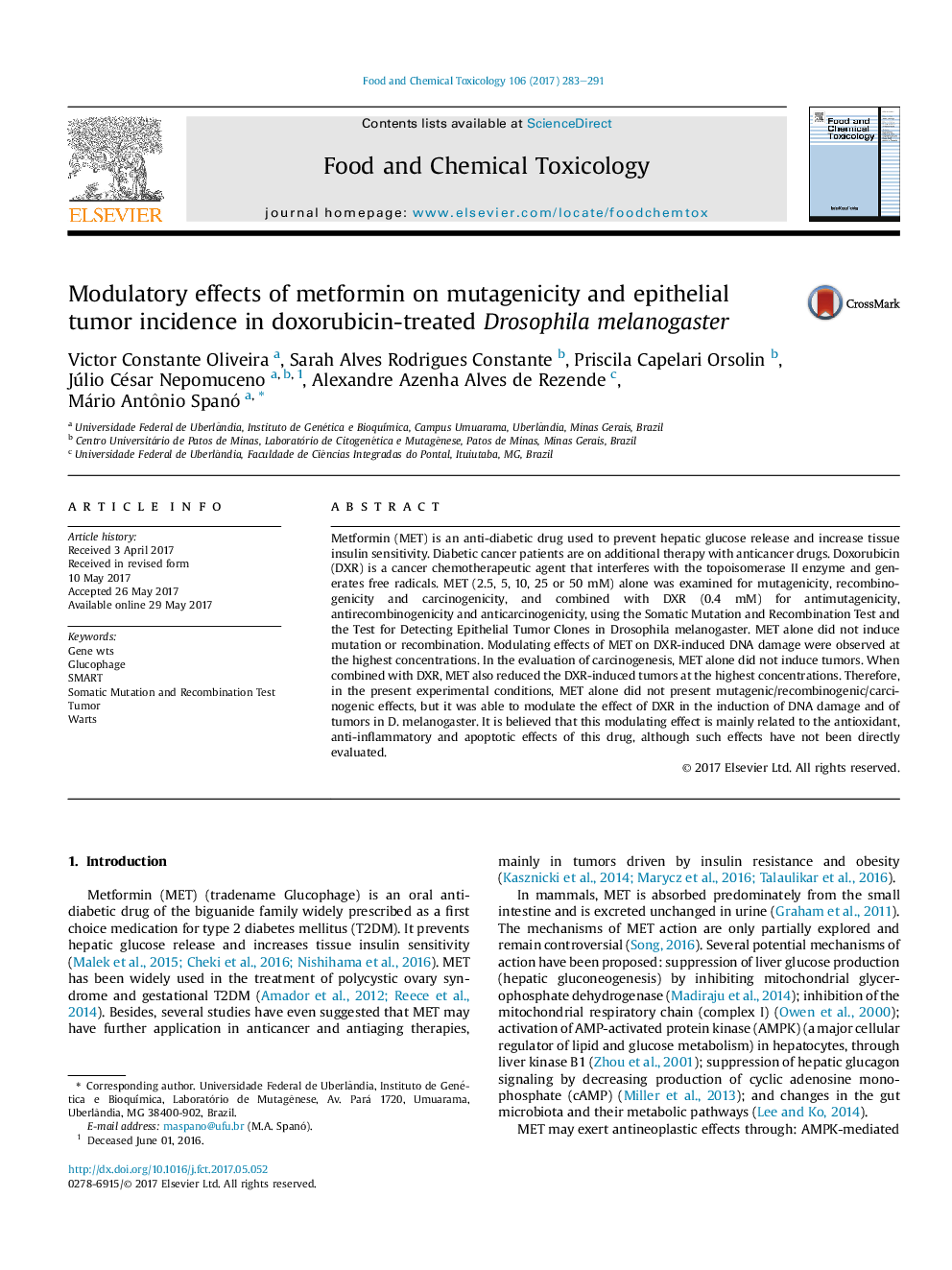| کد مقاله | کد نشریه | سال انتشار | مقاله انگلیسی | نسخه تمام متن |
|---|---|---|---|---|
| 5560130 | 1403309 | 2017 | 9 صفحه PDF | دانلود رایگان |

- Metiformin (MET) was not mutagenic neither recombinogenic in somatic cells of Drosophila melanogaster.
- Modulating effects of MET on Doxorubicin-induced DNA damage were observed in somatic cells of Drosophila at high concentrations.
- MET alone did not induce epithelial tumors in D. melanogaster.
- MET combined with DXR reduced the DXR-induced tumors in Drosophila at high concentrations.
Metformin (MET) is an anti-diabetic drug used to prevent hepatic glucose release and increase tissue insulin sensitivity. Diabetic cancer patients are on additional therapy with anticancer drugs. Doxorubicin (DXR) is a cancer chemotherapeutic agent that interferes with the topoisomerase II enzyme and generates free radicals. MET (2.5, 5, 10, 25 or 50 mM) alone was examined for mutagenicity, recombinogenicity and carcinogenicity, and combined with DXR (0.4 mM) for antimutagenicity, antirecombinogenicity and anticarcinogenicity, using the Somatic Mutation and Recombination Test and the Test for Detecting Epithelial Tumor Clones in Drosophila melanogaster. MET alone did not induce mutation or recombination. Modulating effects of MET on DXR-induced DNA damage were observed at the highest concentrations. In the evaluation of carcinogenesis, MET alone did not induce tumors. When combined with DXR, MET also reduced the DXR-induced tumors at the highest concentrations. Therefore, in the present experimental conditions, MET alone did not present mutagenic/recombinogenic/carcinogenic effects, but it was able to modulate the effect of DXR in the induction of DNA damage and of tumors in D. melanogaster. It is believed that this modulating effect is mainly related to the antioxidant, anti-inflammatory and apoptotic effects of this drug, although such effects have not been directly evaluated.
Journal: Food and Chemical Toxicology - Volume 106, Part A, August 2017, Pages 283-291